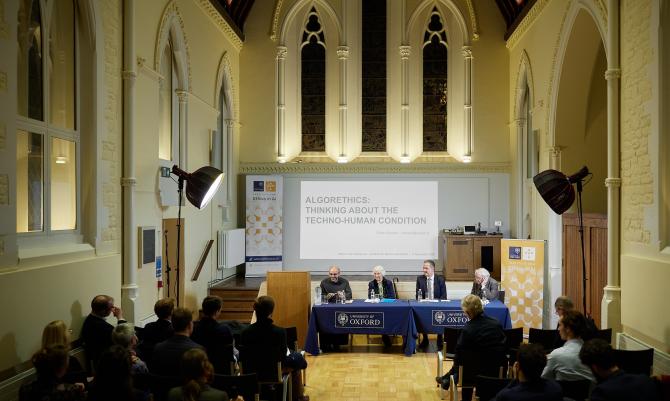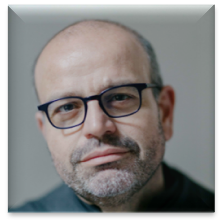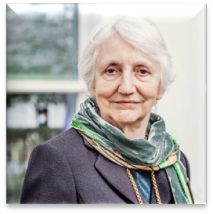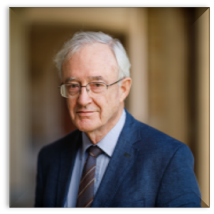
Watch the recording here
Abstract: Artificial intelligence permeates many aspects of daily living: doing an internet search, applying for a loan, looking for a job, and even getting to know a person through a platform are all activities that occur through the action of various artificial intelligence algorithms. These technologies, precisely because they are present in the background of existence, become almost invisible and are unknown to us in their true nature. Trying to make the action of these ubiquitous tools visible and understandable and asking what to do to manage them and how not to oust humans from the decision-making process is the goal of this Colloquium. It tries to address the challenge of keeping humanity capable of control in an age when the machine becomes capable of surrogating human decisions. What can the machine do without human control? What decisions can it make? How to manage the possible nefarious outcomes of this delegation? Most importantly, how to ensure that the person always remains at the centre of those processes vital to the survival of our species and peaceful social coexistence?
The Institute for Ethics in AI will bring together world-leading philosophers and other experts in the humanities with the technical developers and users of AI in academia, business and government. The ethics and governance of AI is an exceptionally vibrant area of research at Oxford and the Institute is an opportunity to take a bold leap forward from this platform.
Every day brings more examples of the ethical challenges posed by AI; from face recognition to voter profiling, brain machine interfaces to weaponised drones, and the ongoing discourse about how AI will impact employment on a global scale. This is urgent and important work that we intend to promote internationally as well as embedding in our own research and teaching here at Oxford.

Father Paolo Benanti, born in Rome (Italy), on 20 July 1973, has been a Franciscan of the Third Order Regular since 1999. His studies have included engineering (La Sapienza), as well as philosophy and theology (Lateran, Gregorian), with special interest in ethics and moral theology; his doctorate was in the area of bioethics. Professor of Moral Theology, Ethics of Technology and Neuroethics at the Gregorian. He is a member of the Task Force on Artificial Intelligence of the Agenzia per l'Italia Digitale and the Prime Minister’s Office. The author of many academic and more popular articles, he has recently published the books La grande invenzione, San Paolo, 2021, and, Oracoli. Tra algoretica e algocrazia, Luca Sossela Editore, Roma 2018.
Commentators

Baroness Onora O'Neill combines writing on political philosophy and ethics with a range of public activities. She comes from Northern Ireland and has worked mainly in Britain and the US. She was Principal of Newnham College, Cambridge from 1992-2006, President of the British Academy from 2005-9, chaired the Nuffield Foundation from 1998-2010, has been a crossbench member of the House of Lords since 2000 (Baroness O’Neill of Bengarve). She has chaired the UK’s Equality and Human Rights Commission from 2012-16 and served on of the Medical Research Council and the Banking Standards Board until 2018. In 2017, she was awarded the Holberg Prize and the Berggruen Prize for Philosophy and Culture. She lectures and writes on justice and ethics, accountability and trust, justice and borders, as well as on the future of universities, the quality of legislation and the ethics of communication.

Professor John Finnis was born in South Australia in 1940, studied Law at the University of Adelaide, and went to Oxford in 1962 as Rhodes Scholar for South Australia. His D.Phil. under the supervision of HLA Hart was on the Idea of Judicial Power. From 1966 to 2010 he was a Law Fellow at University College, Oxford, and from 1989 to 2010 ad hominem Professor of Law and Legal Philosophy in the University of Oxford. Since 1990 he is a Fellow of the British Academy, in which he is a member of both the Law and the Philosophy Sections. From 1995 to 2020 he was a chaired Professor of Law at the University of Notre Dame (Indiana). Oxford University Press published his Natural Law and Natural Rights (1980, 2011), Fundamentals of Ethics (1983), Nuclear Deterrence, Morality & Realism, with Joseph Boyle and Germain Grisez (1987), Aquinas: Moral, Political & Legal Thought (1998), and his five volumes of Collected Essays (2011): I. Reason in Action; II. Intention & Identity; III. Human Rights & Common Good; IV. Philosophy of Law; V. Religion & Public Reasons.
Hosted by

Professor John Tasioulas, the inaugural Director for the Institute for Ethics and AI, and Professor of Ethics and Legal Philosophy, Faculty of Philosophy, University of Oxford. He was previously the inaugural Chair of Politics, Philosophy & Law and Director of the Yeoh Tiong Lay Centre for Politics, Philosophy & Law at The Dickson Poon School of Law, Kings College London. Professor Tasioulas has degrees in Law and Philosophy from the University of Melbourne, and a D.Phil in Philosophy from the University of Oxford, where he studied as a Rhodes Scholar. He was previously a Lecturer in Jurisprudence at the University of Glasgow, Reader in Moral and Legal Philosophy at the University of Oxford, where he taught from 1998-2010, and Quain Professor of Jurisprudence at University College London. He has also acted as a consultant on human rights for the World Bank and is a member of the International Advisory Board of the European Parliament's Panel for the Future of Science and Technology (STOA). He has published widely in moral, legal, and political philosophy.
